
Discover the Enchanting Lviv Region: A Cultural and Historical Gem in Ukraine
Nestled in the heart of Western Ukraine, the Lviv Region is a captivating blend of history, culture, and natural beauty. This region, with its charming cities, picturesque villages, and lush landscapes, offers a unique experience for every traveler. The city of Lviv, a UNESCO World Heritage Site, is the jewel of the region, renowned for its stunning architecture, vibrant cafes, and rich cultural heritage. Walking through Lviv's cobbled streets feels like stepping back in time, with every corner revealing a piece of its fascinating past. Beyond the city of Lviv, the region is dotted with beautiful castles, serene monasteries, and stunning natural parks. The Carpathian Mountains, located in the southern part of the region, are perfect for those who love outdoor activities like hiking, skiing, and exploring nature. The region's dense forests and clear rivers provide a serene escape from the hustle and bustle of city life. Lviv Region is also famous for its culinary delights. Traditional Ukrainian dishes served in cozy local restaurants will tantalize your taste buds. Don't miss out on trying the local cheese, honey, and wine. The region's vibrant festivals, celebrating everything from coffee to jazz music, add to its charm and make it a lively destination all year round.
Local tips in Lviv Region
- Visit Lviv's Old Town early in the morning to avoid crowds and enjoy the architecture in peace.
- Wear comfortable shoes as you will be walking on cobblestone streets in Lviv.
- Try local delicacies like varenyky (dumplings) and borscht (beet soup) in family-run restaurants.
- Take a trip to the Carpathian Mountains for stunning landscapes and outdoor activities.
- Learn a few basic phrases in Ukrainian to enhance your interaction with locals.
- Visit during one of the many festivals to experience the vibrant local culture.
- Carry cash, as some smaller establishments might not accept credit cards.
Discover the Enchanting Lviv Region: A Cultural and Historical Gem in Ukraine
Nestled in the heart of Western Ukraine, the Lviv Region is a captivating blend of history, culture, and natural beauty. This region, with its charming cities, picturesque villages, and lush landscapes, offers a unique experience for every traveler. The city of Lviv, a UNESCO World Heritage Site, is the jewel of the region, renowned for its stunning architecture, vibrant cafes, and rich cultural heritage. Walking through Lviv's cobbled streets feels like stepping back in time, with every corner revealing a piece of its fascinating past. Beyond the city of Lviv, the region is dotted with beautiful castles, serene monasteries, and stunning natural parks. The Carpathian Mountains, located in the southern part of the region, are perfect for those who love outdoor activities like hiking, skiing, and exploring nature. The region's dense forests and clear rivers provide a serene escape from the hustle and bustle of city life. Lviv Region is also famous for its culinary delights. Traditional Ukrainian dishes served in cozy local restaurants will tantalize your taste buds. Don't miss out on trying the local cheese, honey, and wine. The region's vibrant festivals, celebrating everything from coffee to jazz music, add to its charm and make it a lively destination all year round.
When is the best time to go to Lviv Region?
Iconic landmarks you can’t miss
Lviv National Opera
Experience the majestic Lviv National Opera, a cultural beacon showcasing stunning performances and breathtaking architecture in the heart of Ukraine.
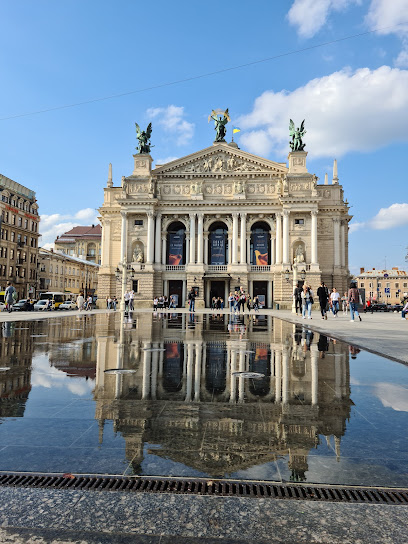
Museum-Arsenal
Discover Lviv's military history at the Museum-Arsenal, showcasing an impressive collection of weapons and artifacts that narrate the city's storied past.
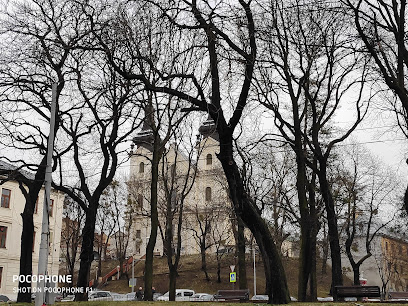
Shevchenkivskyi Hai Park Museum
Experience the essence of Ukrainian culture at Shevchenkivskyi Hai Park Museum, Lviv's premier open-air museum showcasing traditional life and heritage.
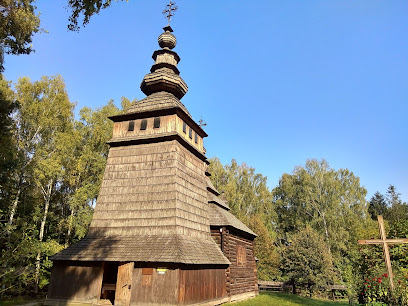
Muzeyno-Kulʹturnyy Kompleks Pyvnoyi Istoriyi - Lʹvivarnya
Discover the captivating history of beer brewing in Ukraine at the Museum of Beer History in Lviv, a must-visit for enthusiasts and culture seekers.
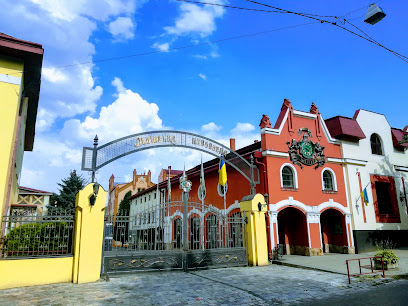
Union of Lublin Mound
Discover the breathtaking views of Lviv from the Union of Lublin Mound, a historic observation deck offering stunning panoramas of the city's architecture.
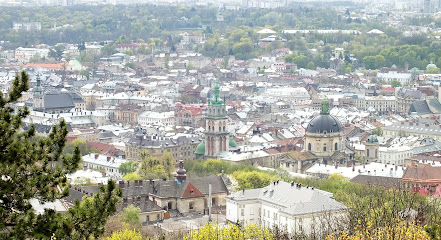
Taras Shevchenko Monument
Explore the Taras Shevchenko Monument in Lviv, a striking symbol of Ukrainian culture and heritage, surrounded by vibrant city life.
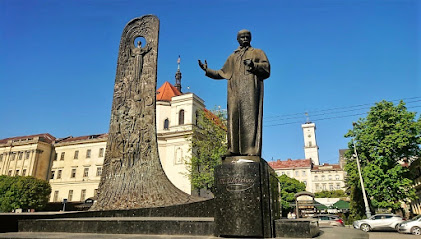
House of Scientists
Explore the House of Scientists in Lviv, a historic landmark where art and culture intersect in a stunning architectural setting.
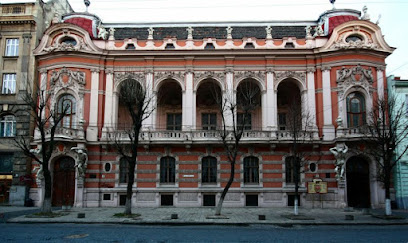
Powder Tower
Explore the stunning Powder Tower in Lviv, a historical fortress that offers a glimpse into the city's rich past and breathtaking views.
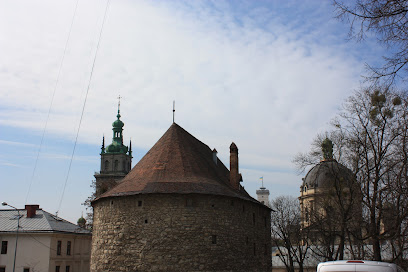
Pharmacy Museum
Explore the captivating world of medicine and history at Lviv's Pharmacy Museum, a unique destination for curious travelers and history buffs alike.
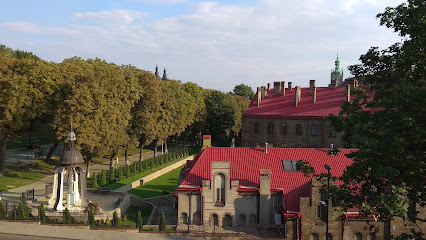
Potocki Palace
Explore the rich history and stunning artistry of Potocki Palace, a must-visit cultural landmark in the heart of Lviv.
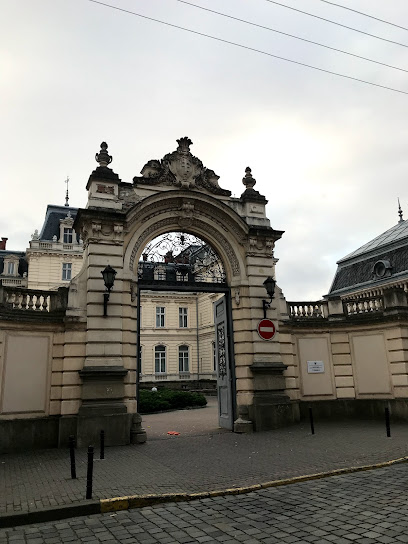
Львівський історичний музей
Explore the Lviv Historical Museum, a treasure trove of Ukrainian culture and history in the heart of Lviv's bustling Rynok Square.
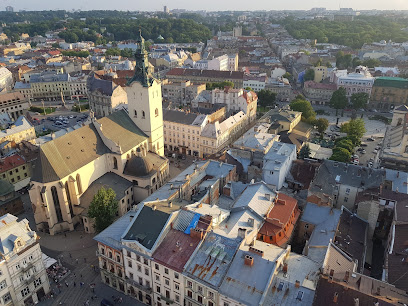
Memorial of the Heavenly Company Heroes
Explore the Memorial of the Heavenly Company Heroes in Lviv, a serene tribute to courage and sacrifice that offers profound insights into Ukraine's history.
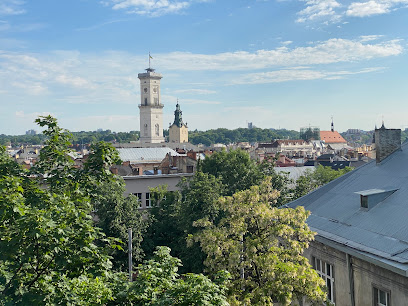
Lychakiv Cemetery
Discover the serene beauty and historical significance of Lychakiv Cemetery, a cultural gem in the heart of Lviv, Ukraine.
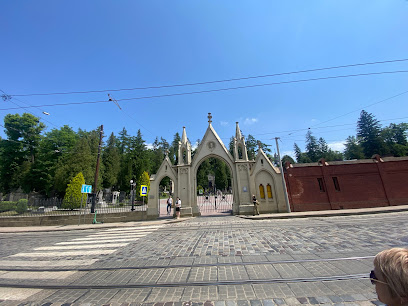
Mykhailo Hrushevskyi Monument
Explore the Mykhailo Hrushevskyi Monument in Lviv, a historical landmark celebrating Ukraine's first president amidst a vibrant cultural backdrop.
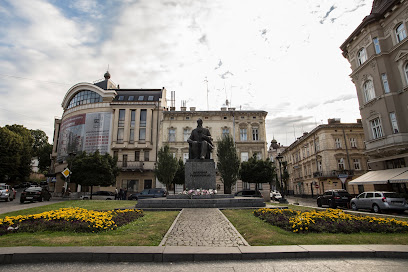
Lonsky Prison National Memorial Museum
Explore the Lonsky Prison National Memorial Museum in Lviv, a poignant tribute to Ukraine's resilience and fight for freedom through history.
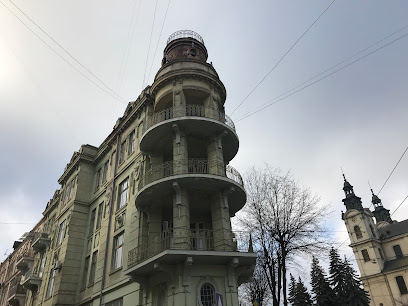
Unmissable attractions to see
Stryiskyi Park
Discover the natural beauty and historical charm of Stryiskyi Park, an enchanting green space in the heart of Lviv, perfect for relaxation and exploration.
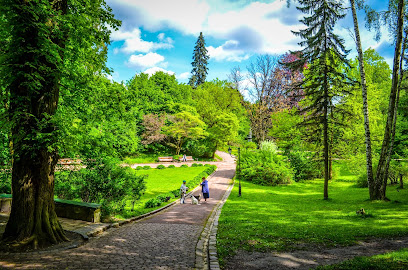
Park Pohulyanka
Immerse yourself in nature's beauty at Park Pohulyanka, a serene escape in Lviv's vibrant cityscape, perfect for relaxation and cultural experiences.
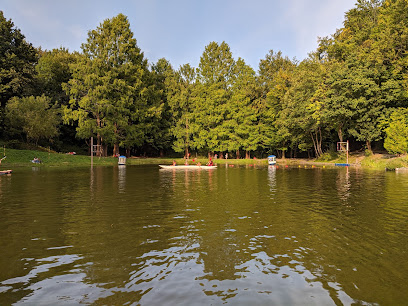
Львівський історичний музей
Explore Lviv's vibrant past at the Lviv Historical Museum, a captivating journey through centuries of culture and heritage.
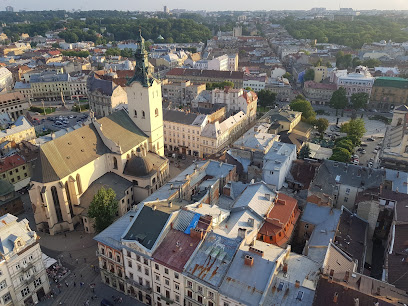
Mykhailo Hrushevskyi Monument
Discover the Mykhailo Hrushevskyi Monument in Lviv, a stunning tribute to Ukraine's heritage and a pivotal figure in its history.
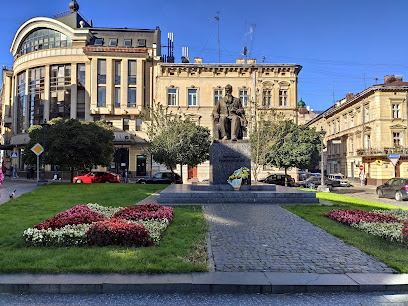
Vynnykivskyi park
Discover the tranquil charm of Vynnykivskyi Park in Lviv, a perfect getaway for nature lovers and families seeking relaxation and outdoor activities.
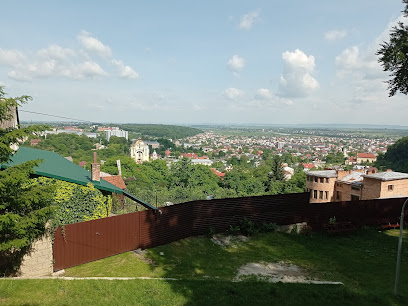
Zalizna Voda Park
Discover the tranquil beauty of Zalizna Voda Park in Lviv, where nature and serenity blend perfectly for an unforgettable experience.
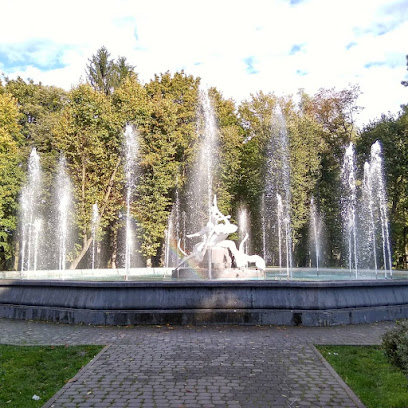
Lion Hill (Bald Hill)
Experience breathtaking views and tranquility at Lion Hill in Lviv, a must-visit natural attraction for every traveler in Ukraine.
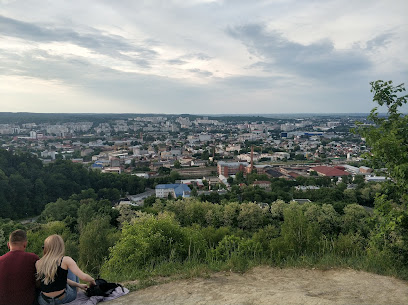
Znesinnya Park
Discover the beauty and tranquility of Znesinnya Park, a lush urban oasis in Lviv perfect for relaxation and exploration amidst nature.
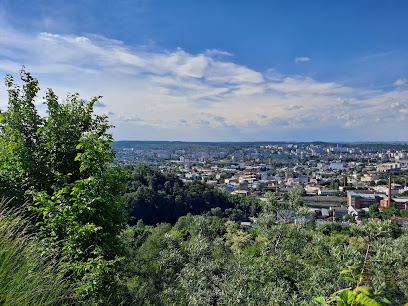
Botanical Garden of Lviv University
Explore the Botanical Garden of Lviv University, a beautiful escape filled with diverse plants and serene landscapes in the heart of Lviv.
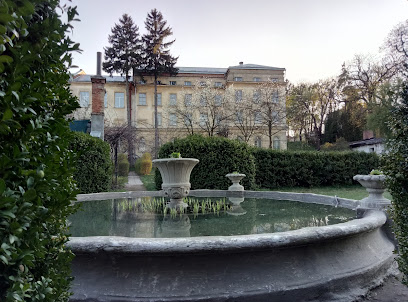
Bernardine monastery
Explore the Bernardine Monastery in Lviv, a stunning historical site that combines spirituality, art, and architectural beauty in the heart of Ukraine.
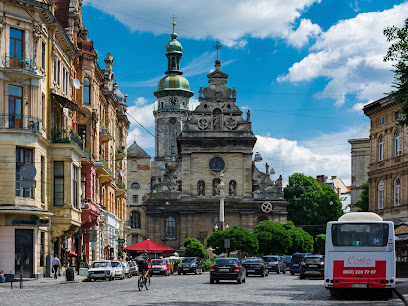
Lviv Museum of the History of Religion
Discover the profound history of faith and spirituality at the Lviv Museum of the History of Religion, a captivating journey through diverse beliefs.
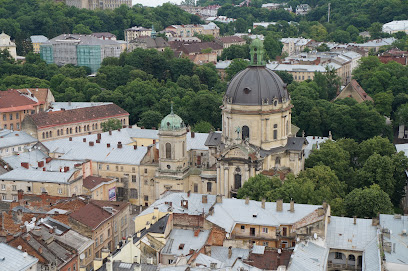
Sosnowski Palace
Explore the architectural wonder of Sosnowski Palace, an iconic historical landmark in Lviv that encapsulates the city's rich cultural heritage.
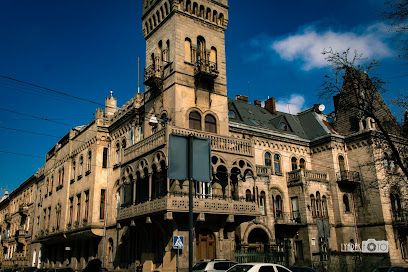
Monument to Jan Kilinski
Discover the rich history and serene beauty of the Monument to Jan Kilinski, an iconic symbol of national pride in Lviv's Stryiskyi Park.
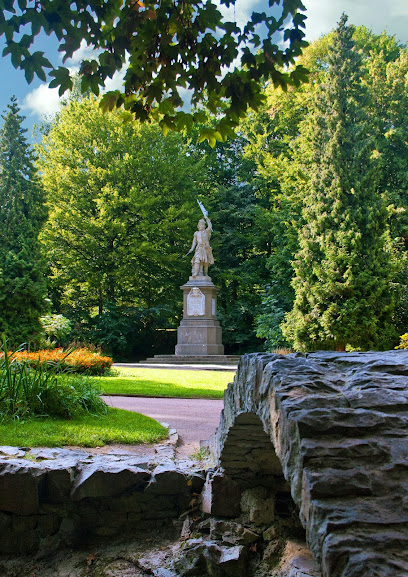
Royal Arsenal
Explore the Royal Arsenal in Lviv, a stunning historical landmark showcasing Ukraine's rich military heritage and captivating architecture.
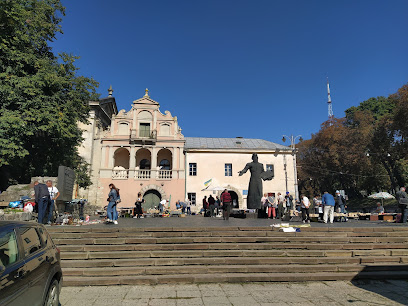
Hlyniany Gate
Explore Hlyniany Gate in Lviv, a historical gem that showcases medieval architecture and the vibrant culture of Ukraine's enchanting city.
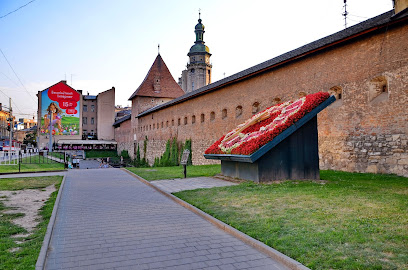
Essential places to dine
Kryivka
Discover Kryivka in Lviv: A captivating blend of authentic Ukrainian cuisine and rich historical ambiance awaits you.
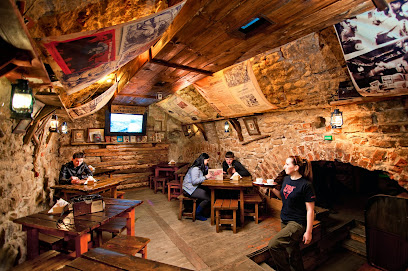
Gas Lamp
Discover authentic Ukrainian flavors at Gas Lamp in Lviv - where tradition meets modern dining in a cozy atmosphere.
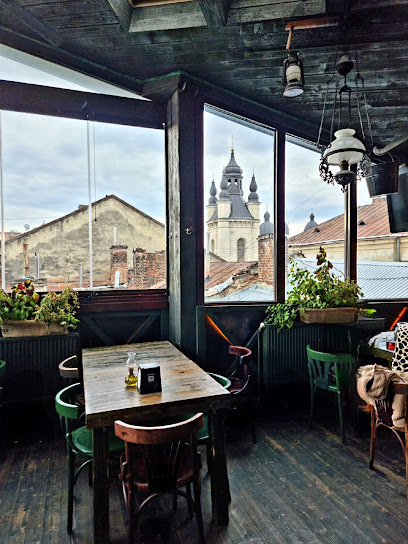
Meat and Justice
Experience top-notch grilled meats at Meat and Justice in Lviv – where flavor meets tradition in every bite.
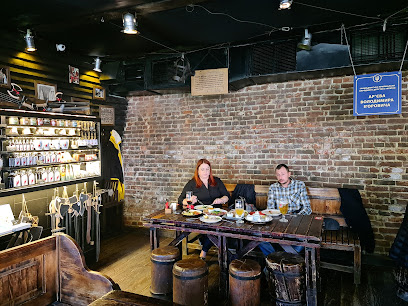
Baczewski Restaurant
Experience modern Ukrainian cuisine at Baczewski Restaurant, where tradition meets innovation in the heart of Lviv.
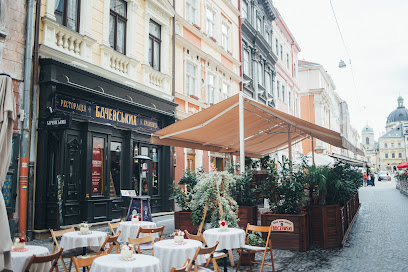
House Of Legends
Experience Lviv's rich culinary heritage at House of Legends, where traditional flavors meet modern creativity in a charming gastropub setting.
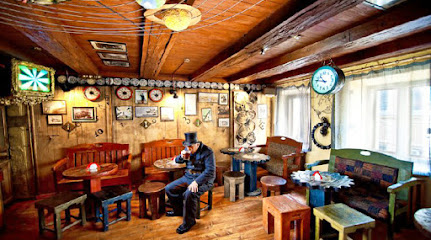
Atlas
Discover Atlas in Lviv – where traditional Ukrainian flavors meet modern café culture in a vibrant setting.
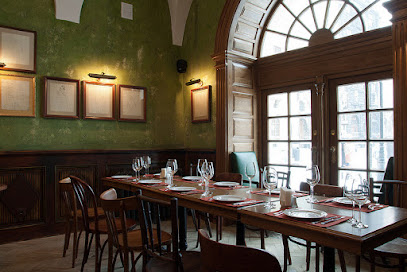
Голодний Микола
Discover the essence of Ukrainian cuisine at Голодний Микола, where tradition meets innovation in every delicious dish.
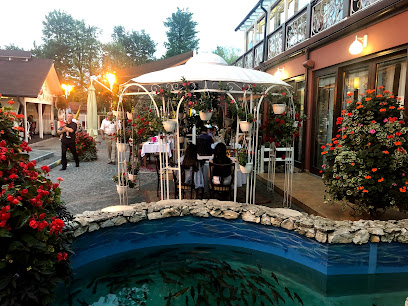
36 Po
Experience exquisite dining at 36 Po in Lviv's historic Rynok Square—where traditional flavors meet modern culinary artistry.
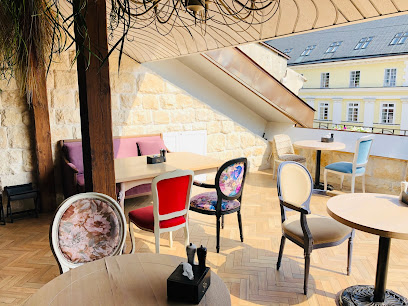
Pstruh, Khlib Ta Vyno
Experience authentic Ukrainian cuisine at Pstruh, Khlib Ta Vyno—where fresh ingredients meet traditional flavors in the heart of Lviv.
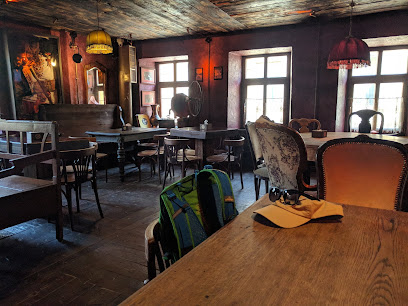
5-Te Pidzemellya
Experience authentic Ukrainian cuisine at 5-Te Pidzemellya in Lviv’s historic Rynok Square – a culinary delight waiting to be discovered.
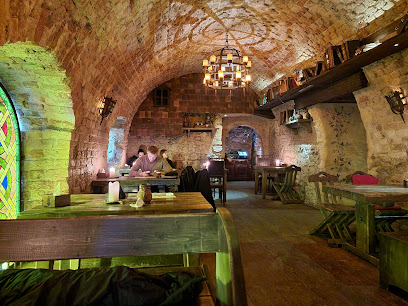
Mons Pius
Experience the best of Ukrainian gastronomy at Mons Pius – Lviv's premier steakhouse offering exquisite cuts and fine wines.
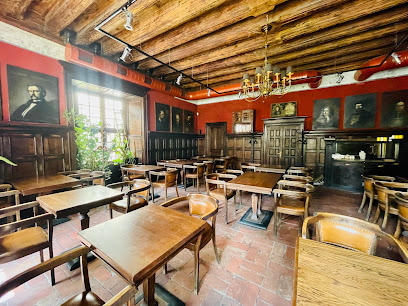
Kryva Lypa Culinary Studio
Experience authentic Ukrainian cuisine in Lviv at Kryva Lypa Culinary Studio - where tradition meets taste.
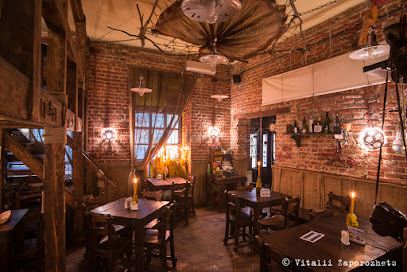
The Most Expensive Galician Restaurant
Experience exquisite Galician cuisine at Lviv's most luxurious restaurant nestled in the historic Rynok Square.
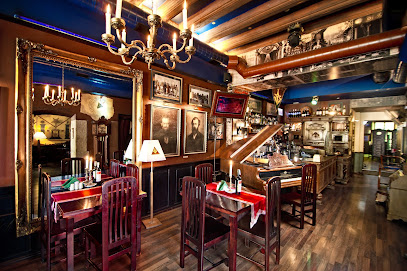
Red Pepper
Experience the vibrant flavors of Ukrainian cuisine at Red Pepper in Lviv—where tradition meets modern dining.
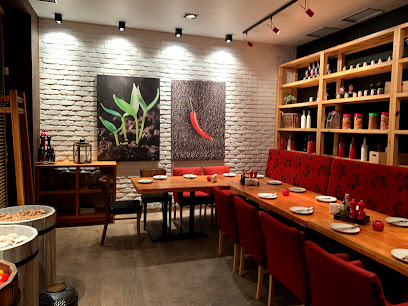
Honey Hive
Discover authentic Ukrainian flavors at Honey Hive - a cozy gastropub in Lviv offering traditional dishes and local brews.
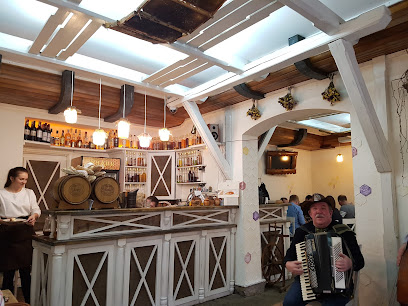
Markets, malls and hidden boutiques
Forum Lviv
Explore Forum Lviv, a vibrant shopping mall offering a diverse range of retail, dining, and entertainment options in the heart of Lviv.
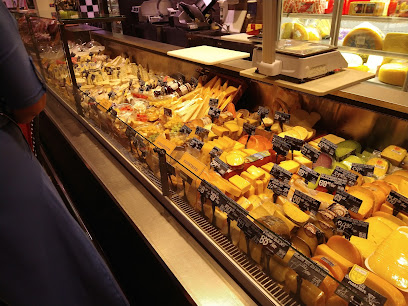
Roksolana
Discover Roksolana in Lviv: A dynamic shopping mall featuring boutiques, restaurants, and family-friendly attractions for an unforgettable experience.
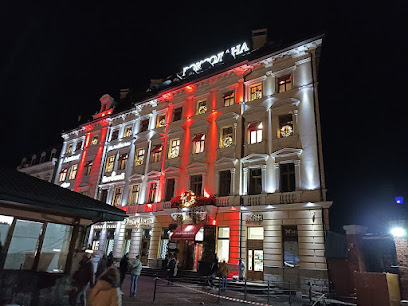
Opera Passage
Discover the charm of Lviv at Opera Passage, a shopping mall that combines culture, shopping, and dining in a stunning architectural setting.
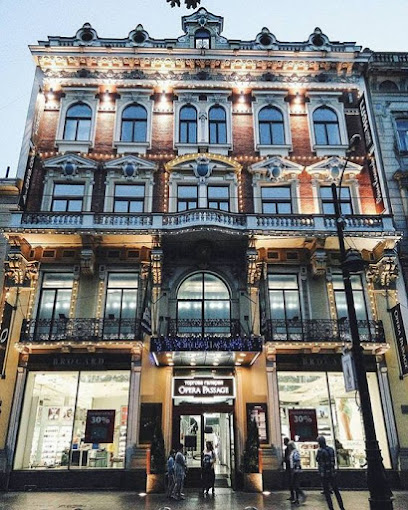
Stylish Lviv
Explore Stylish Lviv: A Fashion Destination in the Heart of Lviv Offering Unique Local Designs and Trendy Apparel.
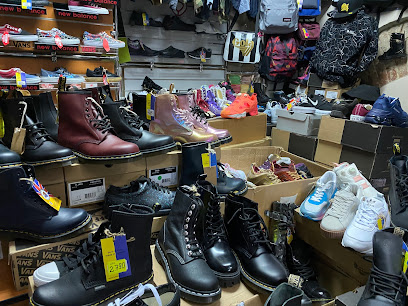
Коза Дереза: подарунки, вишиванки
Explore the enchanting world of Ukrainian embroidery and craft at Коза Дереза, where every souvenir tells a story.
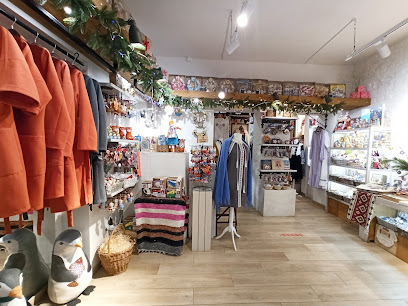
UA Made
Explore UA Made in Lviv for unique clothing, souvenirs, and local crafts reflecting Ukrainian culture and creativity.
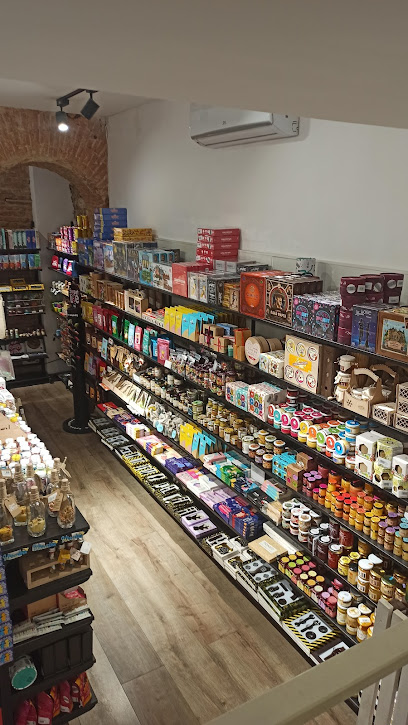
ONE ONE
Explore ONE ONE in Lviv - a trendy clothing store offering vegan meals and artisanal coffee for the style-savvy traveler.
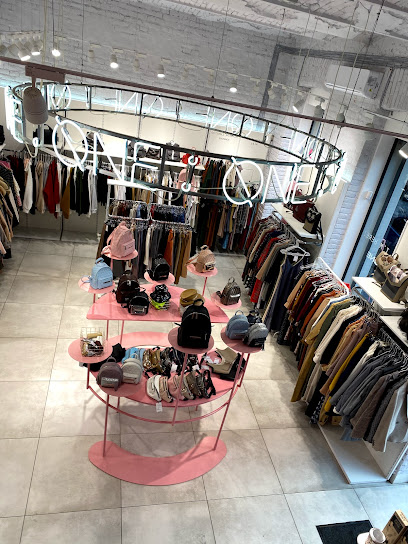
Modna KAZKA
Discover the latest trends in women's fashion at Modna KAZKA, an iconic shopping destination in Lviv that combines style with local charm.
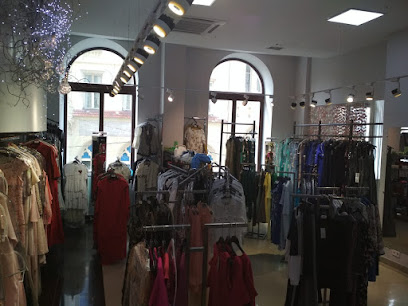
Goodz - Дизайнерські Вишиванки - Ґудз
Explore Lviv's rich culture through unique designer vyshyvankas at Goodz, a premier clothing store offering traditional Ukrainian fashion.
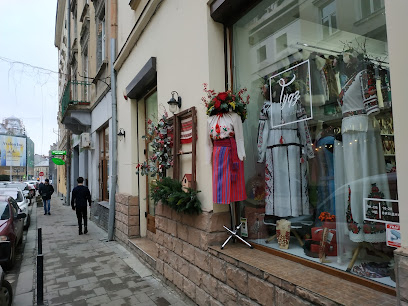
RHIZOME STORE LVIV
Explore Rhizome Store in Lviv for unique women's clothing and accessories that blend contemporary style with local charm.
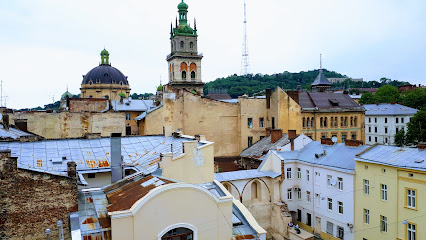
Zelenyy
Explore Zelenyy, Lviv's chic clothing store, where local fashion meets contemporary style for your shopping delight.
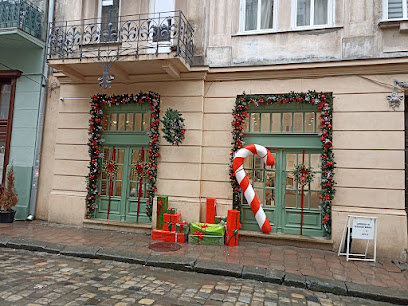
Sex shop Klubnychka
Discover a unique shopping experience in the heart of Lviv at Klubnychka, your destination for stylish lingerie and adult accessories.
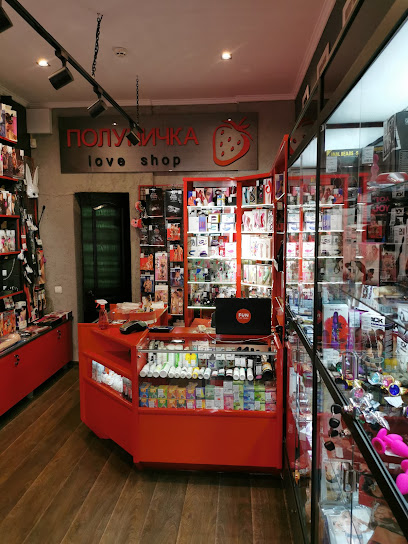
Open Store Lviv
Discover unique women's fashion and self-expression at Open Store Lviv, a must-visit clothing store in the heart of Lviv.
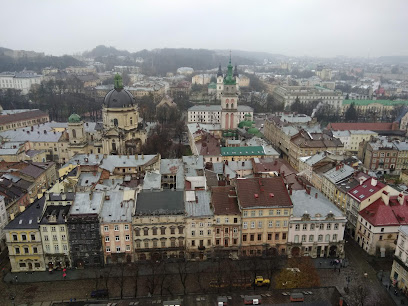
Kram 15 - Mahazyn Suveniriv
Discover unique Ukrainian crafts at Kram 15 - Mahazyn Suveniriv in Lviv's historic Rynok Square, where culture meets creativity.
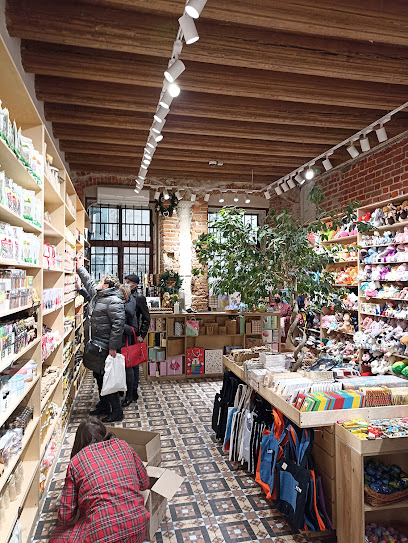
Market square
Explore Market Square in Lviv: A vibrant hub of culture, stunning architecture, and unique shops that captures the essence of this enchanting city.
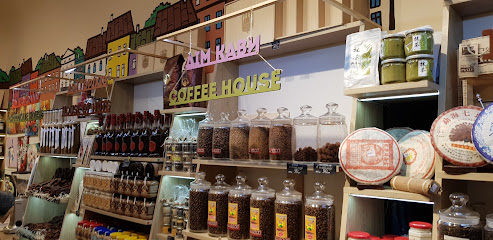
Essential bars & hidden hideouts
Good Friend
Discover the vibrant atmosphere of Good Friend pub in Lviv, where craft beer meets local culture in a cozy setting.
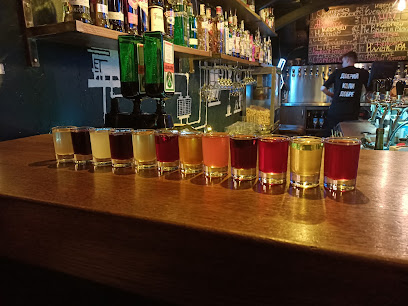
Hashtag
Experience Lviv's vibrant nightlife at Hashtag, the ultimate hookah bar, cocktail lounge, and restaurant offering a taste of local and international flavors.
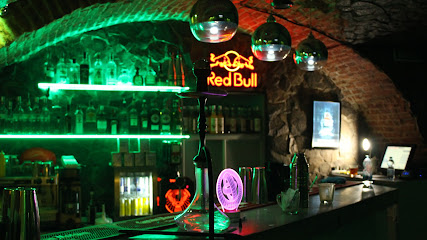
Bigos
Experience the heart of Lviv's pub culture at Bigos, where traditional Ukrainian cuisine meets a vibrant atmosphere.
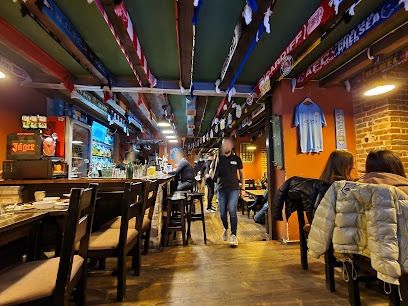
Music Lab
Discover the vibrant atmosphere of Music Lab, a lively bar in Lviv offering great drinks and live music in a unique setting.
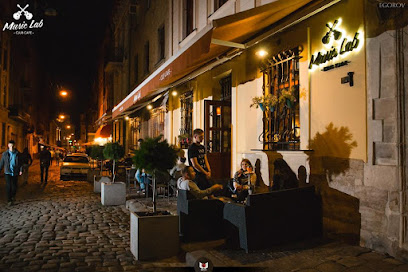
Dublin
Discover the vibrant pub culture of Dublin, where history, music, and friendly faces come together for an unforgettable experience.
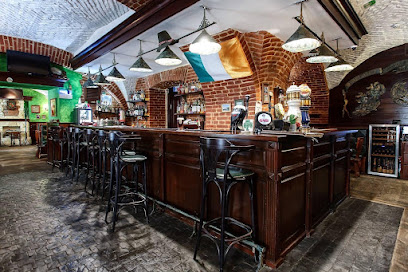
4friends
Experience the best of Lviv's culinary scene at 4friends, a bar and gastropub with gourmet hamburgers and exquisite cocktails.
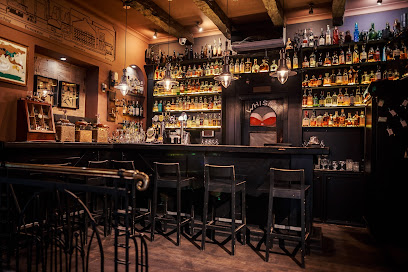
MAD bar's house
Discover the vibrant nightlife at MAD Bar's House in Lviv, where modern design meets an extensive drink menu and lively atmosphere.
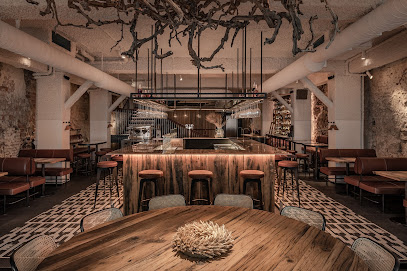
Cantona Pub
Experience the lively atmosphere of Cantona Pub, where great beer, delicious burgers, and football unite in the heart of Lviv.
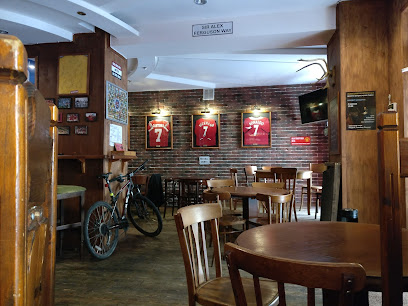
Korzo
Discover the vibrant atmosphere and delicious offerings at Korzo, a must-visit pub in the heart of Lviv, Ukraine.
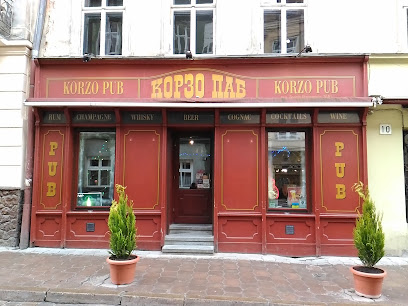
12 Steps Bar
Discover the perfect blend of upscale dining and vibrant nightlife at 12 Steps Bar, the gem of Lviv's social scene.
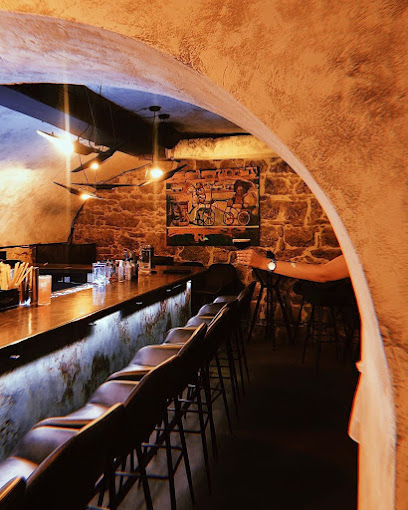
Midnight Cocktail Bar
Unwind at Midnight Cocktail Bar in Lviv - a stylish destination for exquisite cocktails, lounge vibes, and vibrant nightlife.
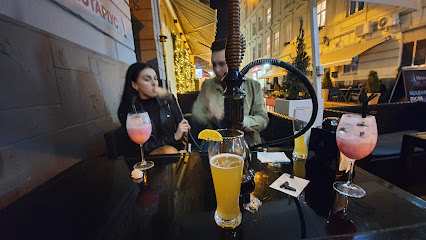
Dovhi Burkhlyvi Oplesky
Experience the best of Lviv's culinary scene at Dovhi Burkhlyvi Oplesky, where traditional flavors meet modern dining in a cozy gastropub.
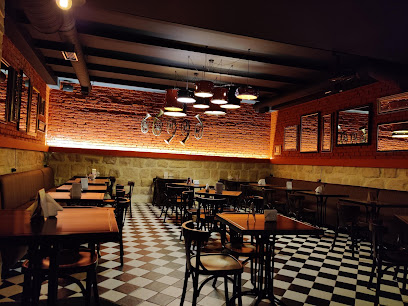
The old walls
Experience the serene ambiance of The Old Walls, a cozy lounge in Lviv specializing in authentic Chinese teas and cultural tea ceremonies.
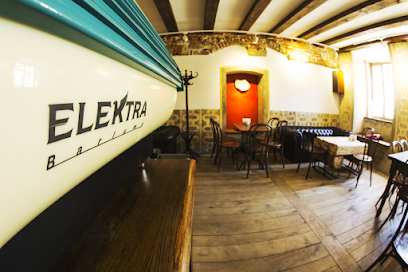
Vezha
Experience the vibrant culture of Lviv at Vezha, where live music, delicious drinks, and a cozy atmosphere await you.
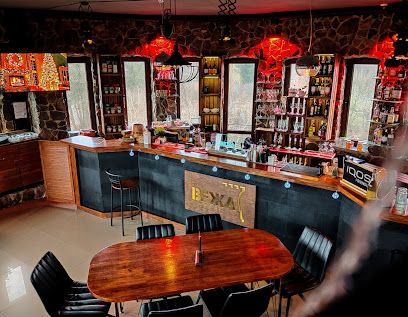
Local Phrases about Lviv Region
-
- HelloПривіт
[Privit] - GoodbyeДо побачення
[Do pobachennia] - YesТак
[Tak] - NoНі
[Ni] - Please/You're welcomeБудь ласка
[Bud laska] - Thank youДякую
[Dyakuyu] - Excuse me/SorryВибачте
[Vybachte] - How are you?Як ви?
[Yak vy?] - Fine. And you?Добре. А ви?
[Dobre. A vy?] - Do you speak English?Ви говорите англійською?
[Vy hovoryte anhliyskoyu?] - I don't understandЯ не розумію
[Ya ne rozumiyu]
- HelloПривіт
-
- I'd like to see the menu, pleaseЯ б хотів/хотіла подивитись меню, будь ласка
[Ya b khotiv/khotila podivytyss menyoo, bud laska] - I don't eat meatЯ не їм м'ясо
[Ya ne yim m'yaso] - Cheers!Будьмо!
[Budmo] - I would like to pay, pleaseЯ б хотів/хотіла розрахуватись, будь ласка
[Ya b khotiv/khotila rozrakhuvatys, bud laska]
- I'd like to see the menu, pleaseЯ б хотів/хотіла подивитись меню, будь ласка
-
- Help!Допоможіть!
[Dopomozhit!] - Go away!Піди геть!
[Pidi hiet!] - Call the Police!Викличте поліцію!
[Vyklchyte politsiyu!] - Call a doctor!Викличте лікаря!
[Vyklchyte likarya!] - I'm lostЯ загубився/загубилась
[Ya zahubyvsya/zahubyilas] - I'm illЯ хворий/хвора
[Ya khvoryy/khvorah]
- Help!Допоможіть!
-
- I'd like to buy...Я б хотів/хотіла купити...
[Ya b khotiv/khotila kupity...] - I'm just lookingЯ просто дивлюсь
[Ya prosto dyvlyus] - How much is it?Скільки це коштує?
[Skilky tse koshtue?] - That's too expensiveЦе занадто дорого
[Tse zanadto doroho] - Can you lower the price?Можна знизити ціну?
[Mozhna znyzyty tsinu?]
- I'd like to buy...Я б хотів/хотіла купити...
-
- What time is it?Котра година?
[Kotra hodyna?] - It's one o'clockОдна година
[Odna hodyna] - Half past (10)Пів на одинадцяту
[Piv na odynadtsyatu] - MorningРанок
[Ranok] - AfternoonДень
[Den] - EveningВечір
[Vechir] - YesterdayВчора
[Vchora] - TodayСьогодні
[Sogodni] - TomorrowЗавтра
[Zavtra] - 1Один
[Odyn] - 2Два
[Dva] - 3Три
[Try] - 4Чотири
[Chotyry] - 5П'ять
[Pyat] - 6Шість
[Shist] - 7Сім
[Sim] - 8Вісім
[Visim] - 9Дев'ять
[Devyat] - 10Десять
[Desyat]
- What time is it?Котра година?
-
- Where's a/the...?Де є/знаходиться...?
[De ye/znakhodytsya...?] - What's the address?Яка адреса?
[Yaka adresa?] - Can you show me (on the map)?Чи можете ви показати мені (на мапі)?
[Chy mozhete vy pokazaty meni (na mapi)?] - When's the next (bus)?Коли наступний (автобус)?
[Koly nastupnyy (avtobus)?] - A ticket (to ....)Квиток (до ....)
[Kvytok (do ....)]
- Where's a/the...?Де є/знаходиться...?
History of Lviv Region
-
Lviv, established in 1256, was founded by King Danylo Halytskyi and named after his son, Lev. The city quickly became a prominent trade and cultural center in the Kingdom of Galicia-Volhynia. Its strategic location on the crossroads of various trade routes facilitated its growth and development.
-
In 1349, the region was annexed by the Kingdom of Poland, becoming part of the Polish-Lithuanian Commonwealth in 1569. Under Polish rule, Lviv experienced significant growth, becoming one of the most important cities in the Commonwealth. The city's architectural landscape flourished with numerous churches, palaces, and civic buildings, reflecting its diverse cultural and religious communities.
-
Following the partition of Poland in 1772, Lviv was incorporated into the Habsburg Empire, known as Lemberg in German. The city benefited from extensive urban planning and modernization efforts during the Austro-Hungarian period. Institutions like Lviv University (established in 1661, restructured under Austrian rule) and the National Museum became key cultural and educational centers.
-
After World War I, Lviv became part of the newly re-established Polish state. The interwar period was marked by vibrant cultural and intellectual activity. However, World War II brought significant turmoil; the city was first occupied by Soviet forces in 1939, then by Nazi Germany in 1941, and again by the Soviets in 1944. These occupations led to tragic events, including the Holocaust, which decimated the Jewish population.
-
Following World War II, Lviv and the surrounding region were annexed by the Soviet Union and incorporated into the Ukrainian SSR. The Soviet period was characterized by industrialization, urban expansion, and cultural suppression. However, Lviv remained a stronghold of Ukrainian national identity and dissent against Soviet rule.
-
With the dissolution of the Soviet Union in 1991, Lviv became part of an independent Ukraine. The city has since experienced a cultural revival, celebrating its rich heritage and becoming a hub for Ukrainian national consciousness. Lviv's historic center, a UNESCO World Heritage Site, attracts tourists from around the world, offering a blend of architectural styles and a vibrant cultural scene.
Lviv Region Essentials
-
Lviv Region is well-connected and accessible by various means of transportation. The primary entry point is Lviv Danylo Halytskyi International Airport (LWO), located about 6 kilometers from the city center. Direct flights are available from many European cities. If you are arriving by train, Lviv Railway Station is a major hub on the Ukrainian rail network, with frequent connections from Kyiv, Odessa, and other cities. For those traveling by road, international buses and car rentals are also viable options.
-
Lviv Region offers a range of transportation options. In Lviv city, you can use trams, buses, trolleybuses, and marshrutkas (minibuses), which are affordable and cover most parts of the city. Taxis are also available and can be hailed on the street or booked via apps like Uklon or Bolt. For intercity travel, trains and long-distance buses are reliable and economical. Renting a car is a convenient option for exploring rural areas and smaller towns within the region.
-
The official currency of Ukraine is the Ukrainian Hryvnia (UAH). Credit and debit cards are widely accepted in Lviv city, especially in hotels, restaurants, and shops. However, it is advisable to carry some cash, particularly when traveling to rural areas or smaller towns where card payments may not be accepted. ATMs are readily available in cities and larger towns. Currency exchange offices can be found throughout Lviv city.
-
Lviv Region is generally safe for tourists, but standard precautions should be taken. Avoid walking alone at night in poorly lit or unfamiliar areas. Be cautious of pickpockets, especially in crowded places like markets and public transport. The areas around the central train station and some outlying neighborhoods have higher crime rates and should be approached with caution. Always keep an eye on your belongings and be aware of your surroundings.
-
In case of an emergency, dial 112, the general emergency number in Ukraine. For police assistance, you can call 102. Medical emergencies can be addressed by calling 103 to reach an ambulance. It is advisable to have travel insurance that covers medical emergencies. Major hospitals and clinics are available in Lviv city, and pharmacies are widespread where you can find over-the-counter medications.
-
Fashion: Do dress modestly when visiting religious sites; avoid overly casual or revealing clothing. Religion: Do respect local customs; cover your head when entering churches. Public Transport: Do offer your seat to elderly passengers and avoid loud conversations. Don't eat or drink on public transport. Greetings: Do greet with a handshake or a nod; it's polite to use formal titles. Eating & Drinking: Do try local dishes and specialties; accept food and drink offerings graciously. Don't refuse hospitality as it can be seen as impolite.
-
To experience Lviv Region like a local, visit the vibrant markets such as the Krakivskyi Market for fresh produce and local goods. Engage with locals, as they are often friendly and willing to share stories. Don’t miss the opportunity to take a coffee tour in Lviv city, known for its rich coffee culture. Explore the region’s historical sites like the UNESCO-listed Lviv Historic Center, Olesko Castle, and the wooden churches of the Carpathian region. For a unique experience, attend a local festival or cultural event, which are common throughout the year.
Trending Landmarks in Lviv Region
-
Lviv National Opera
-
Museum-Arsenal
-
Shevchenkivskyi Hai Park Museum
-
Muzeyno-Kulʹturnyy Kompleks Pyvnoyi Istoriyi - Lʹvivarnya
-
Union of Lublin Mound
-
Taras Shevchenko Monument
-
House of Scientists
-
Powder Tower
-
Pharmacy Museum
-
Potocki Palace
-
Львівський історичний музей
-
Memorial of the Heavenly Company Heroes
-
Lychakiv Cemetery
-
Mykhailo Hrushevskyi Monument
-
Lonsky Prison National Memorial Museum
Nearby Cities to Lviv Region
-
Things To Do in Ivano-Frankivsk
-
Things To Do in Ternopil
-
Things To Do in Lutsk
-
Things To Do in Rzeszow
-
Things To Do in Mukachevo
-
Things To Do in Uzhhorod
-
Things To Do in Lublin
-
Things To Do in Khmelnytskyi
-
Things To Do in Tarnow
-
Things To Do in Chernivtsi
-
Things To Do in Prešov
-
Things To Do in Košice
-
Things To Do in Satu Mare
-
Things To Do in Baia Mare
-
Things To Do in Kielce












